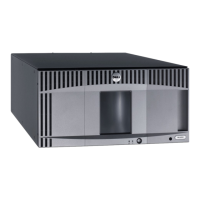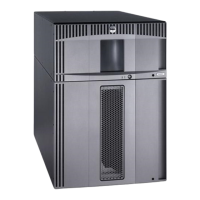[--secondary <ip address>]
network --setbonding [--mode <ALB | 802.3ad>]
[--mtu <Supported MTU range 512 - 9000>]
network --nslookup --destination <ip address | hostname>
network --traceroute --destination <ip address | hostname>
network --ping --destination <ip address | hostname>
[--tries <number>
[--size <number>
network --troubleshoot [--links]
[--gateway]
[--ntp]
[--dns]
[--active_domain]
[--nis]
[--clients]
[--port_mapper]
[--network_config]
[--show_active <nfs | cifs | ost>]
network --tcpdump [--port <nfs | windows |replication | ost>]
[--pkt_size <128 - 32768>]
[--file_size <0 - 100>]
[--stop]
[--host <ip address list>]
network --iperf_client --server <ip address | hostname>
[--port <number>]
[--window_size <num bytes [KB/MB]>]
[--interval <num seconds>]
[--time <num seconds>]
network --iperf_server --client <ip address | hostname>
[--port <number>]
[--window_size <num bytes [KB/MB]>]
network --help
network <command> <command-arguments>
<command> can be one of:
--show Displays command specific information.
--restart Restarts networking.
--setdhcp Configures the machine to use DHCP.
--setstatic_ip Assigns a static IP address to the machine.
--setdns Configures the Domain Name Servers.
--setbonding Updates bonding mode or MTU information.
--nslookup Looks up the IP address/hostname.
--traceroute Displays the packets route to network host.
--ping Sends ICMP ECHO_REQUEST to destination host.
--troubleshoot Troubleshoots network issues.
--tcpdump Capture network traffic.
--iperf_client Run iperf (Network Performance) in client mode.
--iperf_server Run iperf (Network Performance) in server mode.
For command-specific help, please type network --help <command>
For example:
network --help show
46

